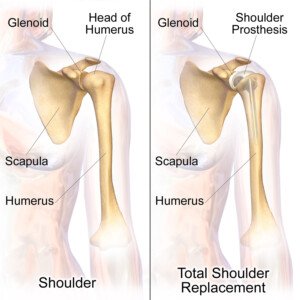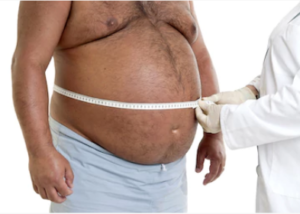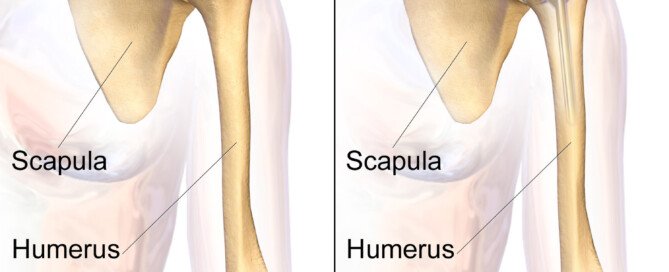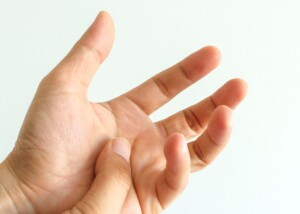Upper Arm Itches Only at Night? Most Likely Cause & Solution

If your upper arm or shoulder itches only at night especially in bed, the cause might not be related to your skin.
First check to see if there’s anything going on with your skin in the area that keeps itching. (more…)
Which Causes More Disease: Poor Diet or Lack of Exercise ?

As bad as a lack of exercise is to the body, the million-dollar question is if a bad diet causes more disease and illness than being lazy and sedentary. (more…)
How Much Should a Parent Take Care of Child’s Puppy?
What’s holding you back from getting your child a puppy?
Is it REALLY because you think YOU’LL end up caring for it?
There’s actually another reason, and you probably know what it is.
“But Mama, why can’t I have a puppy?”
“Because I’m the one who’ll end up taking care of it. The answer is no!”
Your Child Is Begging for a Puppy. You Don’t Want to Do All the Work.
“I feel that the majority of the time a parent says this is when they do not want a pet themselves,” says Dr. Tia Kern-Butler, a licensed psychologist for over 20 years who treats a broad range of issues including relationship problems and behavioral issues of children and adolescents.
“And this excuse is exactly that…a convenient excuse. Parents know they’re going to have the majority of the responsibility.”
To the parent, this should be a no-brainer. After all, what parent in his or her right mind could actually think that a 10-year-old is capable of being the primary caregiver to a dog? A hamster, maybe, but not a dog!
Some parents do get the dog yet still think the child should take on more of the responsibility than what is appropriate or feasible for that child’s age.
And in some cases, deep down, the parent may like the idea of a warm furry thing around the house to cuddle, but does not want the responsibility.
Can’t parents just be honest with their kids?
A parent may be unsure about having a pet, but if the parent truly wanted a dog, they would not be telling their child, “We’re not getting a dog because I’m the one who’s gonna end up cleaning the messes,” points out Dr. Kern-Butler.
“A parent who wants the pet, gets the pet,” says Dr. Kern-Butler. “It’s in the case where the child wants a pet — but the parent does not — that this presents a dilemma.”
If you don’t want a dog (don’t like them, think they smell, don’t want to hassle with fleas, barking, expenses), then just tell your child the truth: “I am not a dog person,” or whatever you think will work best.
Otherwise, by bringing up the concept of caretaking, you’ll prolong the issue and make it very enticing for the child (especially an older and feisty one) to repeatedly argue their case.
But if you flat-out admit that you don’t like dogs…your child will have little room for negotiation attempts.
How much should the parent take care of the puppy?

“I agree, no child is going to have 100% of the pet-care duties,” says Dr. Kern-Butler.
“If a parent wants their child to have the benefits of pet ownership, then a clear discussion about reasonable expectations should occur.
“A parent should use good judgement in the type of pet and care required in regard to the child’s age.
“For example, a hamster is easier for a younger child to care for than a dog. And if a parent is absolutely against caring for the pet themselves, they should not get the pet.
“Yes, it’s sad that the child misses out on the benefits of pet ownership, but it’s in the animal’s best interest in this case.”
What about parents on the fence?
As previously mentioned, there may be some parents who wouldn’t mind having a dog, but the idea of caring for it is daunting.
A dog provides unconditional love to a child – in that unlike the child’s siblings and even parents, an animal will not criticize or judge.

A dog will also teach kids responsibility — even if the pet related chores are only 10 percent of what the parent must do. Ten percent to a 10-year-old is definitely enough to ingrain responsibility.
So if you’re on the fence about dog ownership, you’ll want to consider the aforementioned points.
Kids can always share in the caretaking. For instance, a seven-year-old shouldn’t be walking the dog without supervision, but a seven-year-old is capable of giving it playtime and pouring water into a bowl (at your command).
If your teen wants a puppy, the amount of responsibility goes up, but the parent needs to accept the fact that a teen may not always clean up “accidents” or remember to walk the animal.
Parent Taking Care of the Dog
Once you’ve come to terms with this reality, it won’t be so aggravating when your child forgets to fill the bowl or frets when it’s time to walk the dog.
An example of delegating the caretaking would be that of assigning one daily task to the child such as keeping the water bowl full, or letting the dog out every morning (if the yard is enclosed) to romp around and do its business and then remembering to let the dog back in after a set time range.
You can also dictate more sporadic responsibilities such as giving the dog a bath or grooming it.
Daily tasks, however, cannot be dumped entirely on a juvenile.
Bringing a puppy or dog into the household means you’ll be taking on an additional family member.
A child should not be expected to take 100 percent care of this new family member any more than if this new family member were a human.
 Currently in private practice Dr. Kern-Butler spent 10 years as the lead child and adolescent psychologist with Winter Haven Hospital and served as the mental health liaison for the Children’s Advocacy Center for 14 years.
Currently in private practice Dr. Kern-Butler spent 10 years as the lead child and adolescent psychologist with Winter Haven Hospital and served as the mental health liaison for the Children’s Advocacy Center for 14 years.
Professionalpsychologyofpinellas.com/about-me
 Lorra Garrick has been covering medical, fitness and cybersecurity topics for many years, having written thousands of articles for print magazines and websites, including as a ghostwriter. She’s also a former ACE-certified personal trainer.
Lorra Garrick has been covering medical, fitness and cybersecurity topics for many years, having written thousands of articles for print magazines and websites, including as a ghostwriter. She’s also a former ACE-certified personal trainer.
Shoulder Replacement Surgery Results in Old vs. Young Patients

An oddball discovery is that older people experience better results from shoulder replacement surgery than do young patients.
At first, you’d think that the opposite would be true, that the younger people would have more favorable outcomes. (more…)
Finger Tingling from MS vs. Carpal Tunnel Syndrome

Both multiple sclerosis and carpal tunnel syndrome can cause tingling in the fingers.
However, the tingling of MS is more likely to occur in the forearm when it’s in an upper extremity. But carpal tunnel syndrome can also cause some tingling in the forearm. (more…)
Can ALS Cause Hand Symptoms that Mimic Carpal Tunnel Syndrome?

Unfortunately, early symptoms of ALS can masquerade as symptoms of carpal tunnel syndrome.
If you wait long enough and have ALS, you’ll eventually suffer the progressive symptoms of this neurodegenerative disease. (more…)
The Worst that Can Happen if Carpal Tunnel Is Never Treated
If you don’t get treatment for your carpal tunnel syndrome, it may spontaneously improve, OR, you may end up with permanent pain and grip weakness.
The tricky thing here is that you can’t tell for sure which category you’ll end up in.
So why take the chance? (more…)
Weightlifting Guidelines for Carpal Tunnel Syndrome: Pulling

If you have carpal tunnel syndrome you’ll need to follow some guidelines if you want to do weightlifting that involves pulling like deadlifts, rows, pull-downs and pull-ups. (more…)
Can Carpal Tunnel Syndrome Cause Fingers to Twitch?

A twitching finger makes a person fear they have ALS because this disease causes twitching, so they’re hoping that the real cause is carpal tunnel syndrome.
Finger twitching is common. It can come out of the blue for no apparent reason, however, making a person wonder if it’s the first sign of ALS. (more…)
Can Growth Hormone Injections Make a Short Child Tall ?

Will enough growth hormone injections cause a short child to grow enough to actually be tall for their age?
After all, why stop at just “not as short” when you can achieve “taller than average,” as some parents may wonder.
“The risk of long-term complications of growth hormone therapy in children has not been well-studied,” says Dr. Lisa Lewis, MD, a board certified pediatrician in Fort Worth, Texas, and author of “Feed the Baby Hummus, Pediatrician-Backed Secrets from Cultures Around the World.”
“For this reason, growth hormone treatments should only be reserved for children who are medically classified as short stature and deficient in growth hormone.
“If growth hormone is given to normal children with no growth hormone deficiency, the child is at risk of side effects from the treatment.
“Possible side effects of growth hormone given to a child who is not deficient in growth hormone include diabetes, high blood pressure, organ malfunction (heart, kidney, liver) and atherosclerosis.”
Healthy but Short Children’s Height Increase with HGH: Study
The “more is better” approach does not work when it comes to human growth hormone treatments for children of short stature.
A short child cannot be made tall with growth hormone treatments because the maximum height increase is about three inches.
This information comes from a study, published in 2007, led by Jackie Bryant, a researcher at the University of Southampton in England.
The study pertains to kids whose short height has no medical or other known cause; they are otherwise healthy.
For the study, 10 randomized controlled trials were analyzed, involving 741 kids who were very short but otherwise healthy.
Despite the multitude of injections required, the kids’ ultimately ended up still short, near the lower range of normal, relative to their same-age/gender peers.
According to the report, a final height increase of three inches may cost between $108,000 and $216,000.
One of the reviewed studies included a psychological comparison between the kids who were treated with GH and the control group.
The kids who were treated with growth hormone had reported no improvement in their quality of life.
It’s fair to wonder if they’d report a jump in quality if the height increase actually made them taller than average, vs. merely just not as short.
Growth Hormone for Kids with GH Deficiency: When Is It Too Late for Treatment to Be Effective?
Dr. Lewis explains, “It is too late for treatments to be effective when an adolescent has stopped growing.
“The growth plates in the bone are fused at this point, and no further growth can occur.”



































































